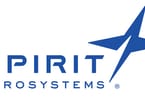JUNEAU — An administration amendment to a bill that would lessen restrictions on cruise ship wastewater discharge drew a hot two-hour debate in a House committee Wednesday.
Department of Environmental Conservation Commissioner Larry Hartig explained the amendments his office came up with in response to an original bill offered by Rep. John Harris, R-Valdez, a former House Speaker.
Rep. Scott Kawasaki, D-Fairbanks, was among those protesting any relaxation of the discharge standards voters implemented through an initiative in 2006.
“We’re doing our best to make sure cruise ships comply with a high standard of clean water, plain and simple,” he said.
But the bill’s sponsor said some relief is necessary if Alaskans want the ships to stay in ports where tourists funnel cash into local economies.
The issue swirls around increasingly stringent discharge standards that ships are expected to meet in 2010. However, the industry maintains that the technology is not commercially available yet to do so.
Others, including Kawasaki, said the technology exists. He attributed the industry’s stall to what could be high costs.
The technology to filter the discharge water to the higher standards exists, Harris said, but not in a form that can be applied in large scale to ships.
He said he believes ships should have to meet the 2010 standards, but not until the technology is available.
The original bill deleted five words — “at the point of discharge” — from the statute governing discharge from cruise ships. Discharge would be measured not where it left the ship, but in a mixing zone where water would dilute effluents.
He said the original was drafted with input from the industry. When DEC wavered in its support, he urged the agency to ink a resolution. The version offered to the Resources committee was one he thought everyone had more or less agreed on.
He wouldn’t carry a bill DEC doesn’t support, he said.
The DEC amendment keeps “at the point of discharge” in the law, but gives DEC authority to issue a permit when a ship can’t meet the standards. The amendment also creates a DEC science advisory panel, which would operate for five years to help the state and cruise lines meet the higher discharge standards.
Despite the lengthy hearing, the House Resources Committee failed to bring about a vote. Chairman Rep. Mark Neuman, R-Anchorage, said the hearing will continue.
Once moved from Resources, the bill, which is backed by a powerful coalition of House leaders, will go before the Rules Committee, then to a floor vote.
Co-sponsors include Rules Committee chairman Rep. John Coghill, R-North Pole, and Rep. Mike Kelly, R-Fairbanks.
A floor vote could prove contentious as lawmakers take sides not along party lines as much as on whether they should protect Alaska clean water, or one of the state’s economic engines. Some Republicans from coastal communities are opposed to the bill.
“It’s not a partisan issue,” Kawasaki said. “Clean water is an Alaskan issue.”
He protested the amendment in committee. He said later that the amendment was more or less a new bill and avoided public discussion.
The bill was added to the committee agenda a day before the hearing, and the meeting was not broadcast.
‘It’s pretty significant public policy decision that avoided scrutiny,” he charged. “The Legislature is discussing basically changing the will of the people.”
Voters approved an initiative in 2006 mandating the cleaner discharge standards. The same initiative implemented a $50 per passenger head tax on cruise lines and created the Ocean Ranger program, requiring cruise lines to place monitors aboard ships to ensure compliance with discharge rules.
USA Today reported this week that Carnival Corp., which has 15 ships in Alaska through Holland America, Princess and Carnival Cruise Lines, will be reducing capacity, in part due to the 2006 initiative and $50 head tax.
According to Fairbanks Convention and Visitors Bureau executive director Deb Hickok, about half the 400,000 annual summer visitors to the Interior reach Alaska on a cruise.
WHAT TO TAKE AWAY FROM THIS ARTICLE:
- The technology to filter the discharge water to the higher standards exists, Harris said, but not in a form that can be applied in large scale to ships.
- The DEC amendment keeps “at the point of discharge” in the law, but gives DEC authority to issue a permit when a ship can't meet the standards.
- The bill was added to the committee agenda a day before the hearing, and the meeting was not broadcast.






















